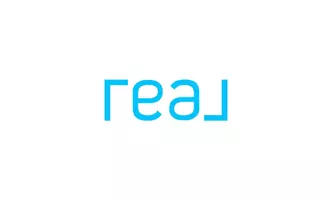First-Time Homebuyer Guide: Your Step-by-Step Path to Homeownership

Buying your first home is one of the most empowering milestones you’ll ever achieve — but it can also feel overwhelming if you’re not sure what to expect. This guide breaks down exactly what it costs, the loan options available, how to prepare, and what the process looks like from start to finish so you can step into homeownership with clarity and confidence.
As a full-time REALTOR®️ serving the Triad & Triangle areas, my job is to simplify the complex, advocate for your best interests, and guide you through every detail before, during, and after your purchase.
Let’s walk through everything you need to know.
🔑 1. Understanding the Upfront Costs of Buying a Home
Even with great loan programs, buying a home is not $0 up-front.
Here’s what to expect:
📌 Due Diligence Fee (DD) — NC-Specific
-
Paid directly to the seller when your offer is accepted.
-
This is your “skin in the game” and gives you the right to inspect the home.
-
DD fees vary, but in today’s market you should expect $500–$2,000+, sometimes higher depending on the price and competitiveness.
📌 Earnest Money Deposit (EMD)
-
Paid to the closing attorney and applied toward your total closing costs.
-
Often 1–2% of the purchase price.
📌 Inspections
You choose which inspections to order based on the home:
-
Home inspection: $450–$650
-
Pest/termite: $75–$115
-
HVAC: $75–$125
-
Sewer scope (if needed): $150–$350
-
Structural or specialist inspections if something is discovered.
📌 Appraisal
-
Required for most loans.
-
Typically $550–$750, paid upfront to the lender.
📌 Closing Costs
These include lender fees, title work, taxes, insurance, escrows, and more.
Expect 2–4% of the purchase price.
➡️ Good news: You may be able to negotiate seller concessions to help cover closing costs depending on market conditions and loan type.
🏦 2. Loan Options for First-Time Buyers
Different buyers have different financial profiles — and lenders offer specific programs to match.
Here are the most common and accessible options:
💠 FHA Loan
-
3.5% minimum down payment
-
Great for buyers with lower credit
-
More flexible debt-to-income ratios
-
Allows seller concessions up to 6%
💠 Conventional Loan
-
3%–5% down for first-time buyers
-
Stronger credit = better rates
-
Lower mortgage insurance than FHA
-
Allows seller concessions
💠 USDA Loan
-
0% down
-
Location-based (many parts of NC qualify)
-
Income limits apply
-
Great option for rural or suburban areas
💠 VA Loan
(For veterans, active duty, and eligible spouses)
-
0% down
-
No mortgage insurance
-
Very competitive interest rates
💠 Down Payment Assistance (DPA) Programs
Local and statewide programs can help with:
-
Down payment
-
Closing costs
-
Grants or forgivable loans
A few examples:
-
NC Housing Finance Agency (NCHFA) DPA programs
-
City of Greensboro Housing Connect GSO ($25,000 assistance for eligible buyers)
-
Lender-specific assistance programs
🧭 3. What to Expect From the Homebuying Process
Here’s how the journey unfolds when you and I work together:
Step 1 — Discovery Call
We talk through your goals, budget, timeline, and must-haves.
Step 2 — Pre-Approval
I connect you with trusted lender partners who can:
-
Run your credit
-
Verify income
-
Provide loan options
-
Tell us exactly what you qualify for
You must be preapproved before touring homes so we know what loan types you can use (especially because many sellers only accept certain loan programs).
Step 3 — Home Search + Showings
Once we know your numbers, we tour homes that match:
-
Location
-
Condition
-
Loan type
-
Budget
I explain resale value, red flags, and opportunities in each property.
Step 4 — Making an Offer
I guide you through:
-
Offer price
-
DD amount
-
EMD amount
-
Contingencies
-
Negotiations
-
Closing cost help (if applicable)
Step 5 — Under Contract
You schedule inspections.
Your lender orders the appraisal.
I negotiate repairs, credits, or price adjustments based on findings.
Step 6 — Closing Day!
You sign your final documents, get your keys, and officially become a homeowner.
📘 4. How to Prepare Before You Start
A little preparation now will save you money, time, and stress later.
✔️ Check your credit and avoid new debt
Lenders prefer stable credit history.
✔️ Gather your documentation
You’ll need:
-
Pay stubs (last 30 days)
-
W-2s (2 years)
-
Bank statements (2–3 months)
-
ID
✔️ Start saving now
Even if you're using a low-down-payment loan, you’ll still need funds for:
-
Due diligence
-
Inspections
-
Appraisal
-
Moving costs
-
Reserves (recommended)
✔️ Don’t make large bank deposits
Everything must be traceable. Keep your accounts clean and steady.
✔️ Mentally prepare for a competitive market
Your readiness = your advantage.
🏡 Final Thoughts: You Don’t Have to Do This Alone
Buying your first home is exciting — but the process is much smoother when you’re guided by someone who knows how to navigate every moving part. My role is to be your advocate, your strategist, and your clarity throughout the entire journey.
If you’re ready to explore your options, I’d love to talk.
📲 Book Your Call & Start Your Homebuying Journey
https://calendly.com/jessicajbrealtor
📲 Call or text (336) 567-5843
Brokered by Real Broker, LLC — NCREL #312309
Jessica J. Baldovinos | @JessicaJBRealtor
🔗 Book a consultation: https://calendly.com/jessicajbrealtor

Categories
- All Blogs (533)
- Buying/Selling Raw Land (18)
- Distressed/Foreclosure Education (22)
- Divorce in NC? Own Real Estate? You Should Know... (21)
- First Time Home Buyer Education (36)
- For Real Estate Agents (15)
- FSBO Tips (37)
- Homebuyer Tips (41)
- Homeowner Tips (44)
- Market Forecast (10)
- Market Updates and Trends (41)
- NC Luxury Market Data (15)
- New Construction Homes (11)
- Real Estate Investor Education (55)
- STOP Renting! START Owning! (21)
Recent Posts










GET MORE INFORMATION

REALTOR® NCREA CREIPS | License ID: 312309

